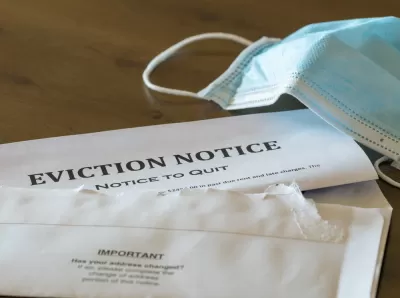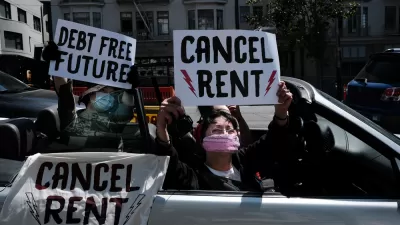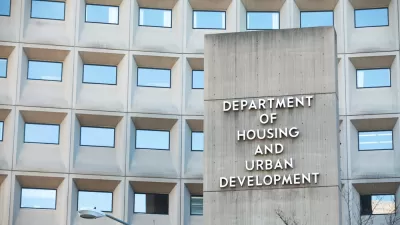Evictions incur immense costs for the public and nonprofit sector, according to new analysis from the Kinder Institute for Urban Research.

"Researchers at the Kinder Institute for Urban Research estimate that in Harris County, the public and private sectors spend $315,680,000 per year addressing the county’s uniquely large mass-eviction crisis," report Stephen Averill Sherman and Carlos Villegas. Those figures only include the costs already enumerated as the most obvious externalities of eviction, but many more expenses are likely hiding downstream of the eviction process, according to the article.
The article notes that evictions occur in "alarmingly high" numbers in Harris County, where Houston is located, according to data cited in the article from Eviction Lab. Therein lies both a problem, and potential solutions, according to Sherman and Villegas:
Houston is not an unusually poor major city, nor does Harris County have an unusually high share of renters (as seen in Table 1, it’s somewhere around the median for the top 10). Therefore, the eviction crisis seems endemic to discrete policies and legal practices within the state and region. But there are ways to address these challenges. Small, inexpensive policies, such as free legal assistance in eviction court, benefit not only the tenant but the bottom line for Harris County’s public coffers, shelters and charity medical providers.
Officials from Harris County and the city of Houston formed a Housing Stability Task Force in June, according to the article, with the Kinder Institute offering technical assistance, but some of the recommendations of the task force have yet to be implemented by county and city officials.
FULL STORY: Evictions cost Harris County over $315 million a year — that was before COVID-19

Planetizen Federal Action Tracker
A weekly monitor of how Trump’s orders and actions are impacting planners and planning in America.

Maui's Vacation Rental Debate Turns Ugly
Verbal attacks, misinformation campaigns and fistfights plague a high-stakes debate to convert thousands of vacation rentals into long-term housing.

San Francisco Suspends Traffic Calming Amidst Record Deaths
Citing “a challenging fiscal landscape,” the city will cease the program on the heels of 42 traffic deaths, including 24 pedestrians.

Amtrak Rolls Out New Orleans to Alabama “Mardi Gras” Train
The new service will operate morning and evening departures between Mobile and New Orleans.

The Subversive Car-Free Guide to Trump's Great American Road Trip
Car-free ways to access Chicagoland’s best tourist attractions.

San Antonio and Austin are Fusing Into one Massive Megaregion
The region spanning the two central Texas cities is growing fast, posing challenges for local infrastructure and water supplies.
Urban Design for Planners 1: Software Tools
This six-course series explores essential urban design concepts using open source software and equips planners with the tools they need to participate fully in the urban design process.
Planning for Universal Design
Learn the tools for implementing Universal Design in planning regulations.
Heyer Gruel & Associates PA
JM Goldson LLC
Custer County Colorado
City of Camden Redevelopment Agency
City of Astoria
Transportation Research & Education Center (TREC) at Portland State University
Jefferson Parish Government
Camden Redevelopment Agency
City of Claremont





























